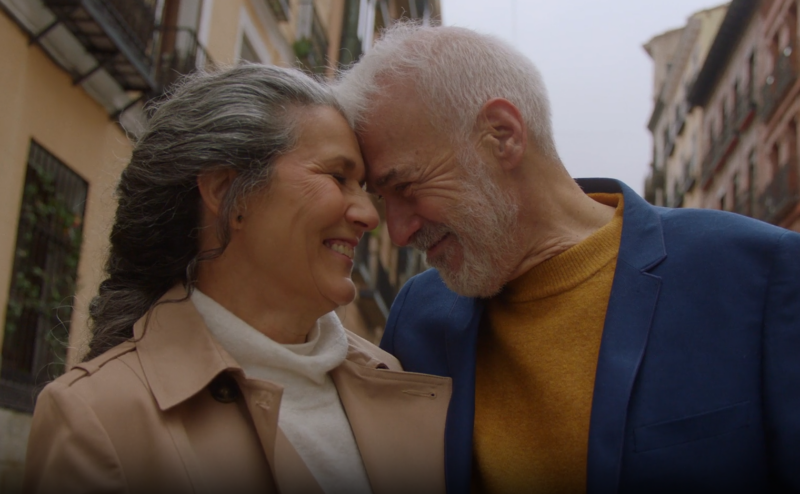When it comes to relationships, we often find ourselves navigating through a mix of emotions and experiences, sometimes uncertain about where we stand. It’s like being on a journey without a map.
However, understanding what makes a healthy relationship is crucial for this journey. It’s not just about the big moments of romance or grand gestures. The essence lies in the little things—the daily interactions, understanding, and respect we share with our partner.
Through my own experiences and those of others, I’ve come to realize that the health of a relationship is a continuous process of growth and learning. Here are 10 questions you can ask yourself to check where you’re standing in your relationship.
1. Do We Respect Each Other?

Respect is the cornerstone of a healthy relationship. It’s about valuing each other’s opinions, boundaries, and individuality. Ask yourself if you feel heard, valued, and respected by your partner.
Respect also means acknowledging differences without judgment. If you find that respect is lacking, it can lead to feelings of resentment and misunderstanding.
A lack of respect might manifest as frequent arguments, disregard for each other’s feelings, or a feeling of inequality. Building respect is about open communication, empathy, and valuing each other’s unique perspectives.
2. Are We Good Communicators?

Effective communication is vital. It’s not just about talking but also about listening and understanding. Assess how well you and your partner discuss feelings, resolve conflicts, and share important experiences.
Good communication builds a strong foundation for any relationship. Poor communication, on the other hand, can lead to misunderstandings, unmet needs, and emotional distance.
If you struggle with communication, it may be time to learn new ways to express yourself and understand your partner. This might involve active listening, being more open about your feelings, or even seeking help from a relationship counselor.
3. Do We Trust Each Other?

Trust is the bedrock of a healthy relationship. It involves feeling secure and confident in your partner’s loyalty and honesty. Reflect on whether there’s mutual trust in your relationship and consider how you can strengthen it.
If trust is missing, it can create a foundation of insecurity and doubt. This could manifest as jealousy, possessiveness, or constant questioning of each other’s motives.
Rebuilding trust requires time, transparency, and consistency in actions and words.
4. Do We Support Each Other’s Goals and Dreams?

A healthy relationship involves supporting each other’s personal growth and ambitions. Consider whether you and your partner encourage each other’s pursuits and respect each other’s goals, even if they differ from your own.
If this support is absent, one or both partners may feel stifled or unfulfilled. This lack of support can lead to resentment or a feeling of being disconnected from each other’s lives.
Encouraging each other’s goals involves active interest and participation in each other’s aspirations and celebrating each other’s successes.
5. Are We Emotionally Intimate?

Emotional intimacy is about sharing your deepest fears, hopes, and feelings. It’s a sign of a strong connection. Evaluate how comfortable and open you are with each other regarding your innermost thoughts and feelings.
Without emotional intimacy, relationships can feel superficial or disconnected. This lack of depth often leads to a lack of understanding and empathy between partners.
Fostering emotional intimacy involves creating a safe space where both partners feel comfortable being vulnerable.
6. Do We Make Time for Each Other?

Quality time strengthens relationships. Reflect on how you and your partner prioritize spending time together, engaging in meaningful activities, or simply enjoying each other’s company.
If you’re not making time for each other, your relationship may suffer from a lack of connection and shared experiences. This could lead to feelings of loneliness or neglect.
Making time for each other, even in busy schedules, is crucial for maintaining a strong bond.
7. Do We Have a Healthy Balance of Independence?

While togetherness is important, so is maintaining your individuality. Consider if your relationship allows space for personal hobbies, friendships, and alone time, which are essential for personal growth.
If this balance is off, it can lead to feelings of loss of self or overdependence on your partner. A healthy relationship respects individual interests and understands that personal time is important for a well-rounded life.
8. How Do We Handle Conflict?

Conflict is inevitable, but it’s how you handle it that matters. Healthy relationships address conflicts constructively, without resorting to hurtful language or actions. Assess how you and your partner manage disagreements.
Poor conflict resolution can lead to unresolved issues and build resentment. It’s important to approach conflicts with a mindset of finding a solution rather than winning an argument.
Effective conflict resolution involves listening, understanding, and compromise.
9. Do We Show Appreciation and Gratitude?

Feeling appreciated is a key part of a healthy relationship. Think about how you and your partner express gratitude and appreciation for each other, both in words and actions.
Lack of appreciation can make a partner feel taken for granted or invisible. It’s important to regularly express gratitude and acknowledge each other’s contributions to the relationship.
Small gestures of appreciation can have a big impact on relationship satisfaction.
10. Are We Happy?

Ultimately, the most important question is whether you’re happy in the relationship. Reflect on your overall satisfaction and joy with your partner.
If happiness is lacking, it might be a sign to reevaluate certain aspects of your relationship. Unhappiness can stem from a variety of issues that need addressing, whether it be communication, trust, or emotional connection.
Finding happiness might involve having honest conversations about your needs and desires or seeking professional help.
FAQs
How can we maintain individuality while being in a relationship?
Maintaining individuality in a relationship is about balancing togetherness with personal space. It’s important to pursue individual interests, hobbies, and friendships.
This not only nurtures your personal growth but also brings new experiences and perspectives into the relationship, keeping it fresh and dynamic.
Is it normal to have doubts in a healthy relationship?
Yes, having doubts is normal and can occur in any relationship. It’s important to communicate these doubts with your partner. Open and honest communication can help address these concerns and strengthen the bond between you two.
How do we keep the relationship exciting over the years?
This involves continuous effort. Try new activities together, set common goals, and keep the lines of communication open. Small gestures of love, surprise dates, or revisiting past happy memories can also reignite the spark.
What role does forgiveness play in a healthy relationship?
Forgiveness is key in a healthy relationship. It involves letting go of grudges and understanding that everyone makes mistakes. Forgiveness helps to move past conflicts without harboring resentment, which is crucial for long-term harmony.
How important is it to have similar interests in a relationship?
While having similar interests can be beneficial, it’s not essential for a healthy relationship. What’s more important is respecting and showing interest in each other’s passions. This respect for individual differences can actually strengthen the bond.
Can a relationship be healthy without constant communication?
Yes, it can. Quality of communication is more important than quantity. Having meaningful conversations, even if they’re not constant, can be more beneficial for the relationship’s health.
Final Thoughts
Asking these questions can reveal a lot about the health of your relationship. Remember, no relationship is perfect, and identifying areas for improvement is a sign of commitment and love.
By regularly evaluating and working on these aspects, you can nurture a fulfilling and healthy relationship that stands the test of time.
If you find areas that need improvement, view them as opportunities for growth and deepening your connection with your partner.

